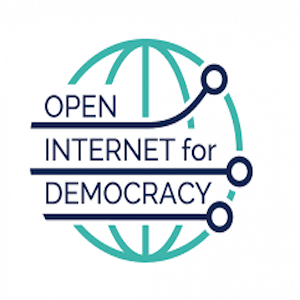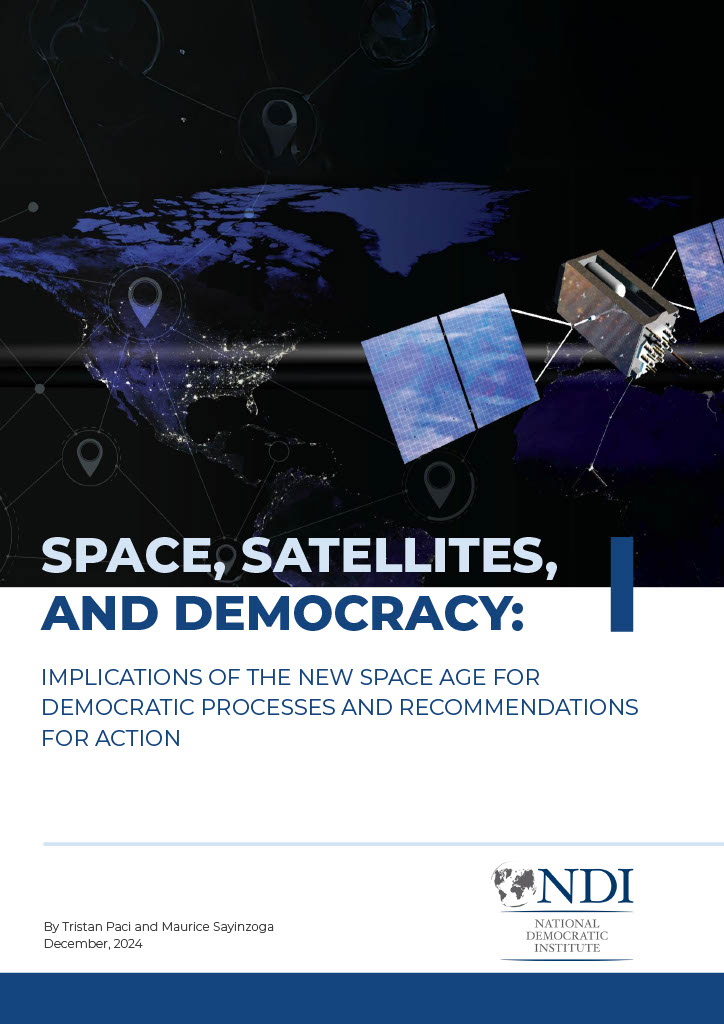Use the keyword search and filters to find recommended guides that fit your needs. You can also use the advanced search for more filtering options.
Technology Guides

Countering Disinformation Guide
A guide to promoting information integrity. This living project provides an outline of what’s being done to address the challenge in key areas and provides a searchable database of the organizations around the world engaged in making the digital landscape safe for democracy.

Open Internet Democracy Initiative
A set of principles for an open internet and global network designed to empower and improve the digital rights literacy of activists and civil society organizations in the Global South.

Open Election Data Initiative
An initiative that applies open data principles to the context of elections. The Initiative contains two main components:
- The Election Data Guide outlines which open data principles are most important in elections.
- The Election Data Academy helps civic actors use and analyze available data.

Co/Act: Human Centered Design (HCD) Toolkit
Human-centered design frameworks start by identifying who a product is for and then placing them at the center of the product strategy. The Co/Act toolkit adapts and expands this approach to design digital products, services, or campaigns through modular do-it-yourself style activities that are aggressively low cost, high impact, interdisciplinary, and focused on building the capacity of participants. Co/Act will help you design more powerful products, services, and campaigns by centering them on your community, stakeholders, and colleagues - ensuring that the end result is more inclusive and therefore democratic.

Space, Satellites, and Democracy: Implications of the New Space Age for Democratic Processes and Recommendations for Action
The dawn of a new space age is upon us, marked by unprecedented engagement from both state and private actors. Driven by technological innovations such as reusable rockets and miniaturized satellites, this era presents a double-edged sword for global democracy. On one side, democratized access to space offers powerful tools for enhancing civic processes. Satellite technology now enables real-time election monitoring, improved communication in remote areas, and more effective public infrastructure planning. It also equips democratic actors with means to document human rights abuses and circumvent authoritarian internet restrictions.
However, the accessibility of these technologies also raises significant concerns. The potential for privacy infringements and misuse by authoritarian regimes or malicious actors casts a shadow over these advancements.
This report discusses the opportunities and risks that space and satellite technologies pose to democracy, human rights, and civic processes globally. It examines the current regulatory and normative frameworks governing space activities and highlights key considerations for stakeholders navigating this increasingly competitive domain.
It is essential that the global democracy community be familiar with emerging trends in space and satellite technology and their implications for the future. Failure to do so will leave the community unprepared to harness the opportunities or address the challenges that space capabilities present. It would also cede influence over the development of global norms and standards in this arena to states and private sector interests alone and, in turn, ensure those standards are not rooted in democratic norms and human rights, but rather in principles such as state sovereignty and profit maximization.
Space financing has historically been dominated by government funding, reflecting the strategic, scientific, and prestige-driven nature of space exploration. While private sector involvement is growing, particularly in areas like satellite communications and Earth observation, state financing remains crucial for large-scale missions, cutting-edge research, and overcoming the enormous technical and financial barriers inherent in space activities.
While such issues around financing of the commercial space industry are important and should not be ignored in a comprehensive assessment of the future of space and the impact of satellite technology, an analysis of these factors falls outside the scope of this report. Instead, this paper focuses on examining the recent advances in space capabilities from the perspective of the democracy and human rights community with the goal of fostering informed dialogue and decision-making to ensure that the benefits of the new space age are harnessed responsibly, in service of democratic values and human rights.
